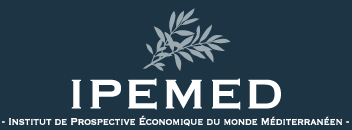2ème Forum des Think Tanks
 2ème Forum des Think Tanks. Le 19 Novembre 2011. Paris Sorbonne. Centre Universitaire Malesherbes, 108, bd Malesherbes 75850 PARIS Cedex 17.
2ème Forum des Think Tanks. Le 19 Novembre 2011. Paris Sorbonne. Centre Universitaire Malesherbes, 108, bd Malesherbes 75850 PARIS Cedex 17.Le 19 novembre 2011, à cinq mois de l’élection présidentielle, 23 think tanks se retrouvent à la Sorbonne pour la deuxième édition de leur forum annuel.
Placé sous le signe du pluralisme et de la convivialité, cet événement veut contribuer à la promotion d’un débat politique apaisé et de qualité.
Les participants se réunissent pour croiser leurs réflexions et confronter leurs propositions autour d’enjeux contemporains majeurs tels que la dette publique, la croissance économique, la gouvernance, l’éducation, le numérique, le lien social ou la mondialisation.
Les participants
| ASSOCIATION pour la FONDATION de l'ECOLOGIE POLITIQUE |
ASSOCIATION pour la FONDATION
|
| CAUCUS DES DIVERSITES EN EUROPE |  |
| CLUB JADE |  |
| EN TEMPS REEL | |
| EUROPA NOVA | |
|
Fondation pour l'Agriculture et la Ruralité dans le monde |
 |
| FONDATION CONCORDE |  |
| FONDATION GABRIEL PERI |  |
|
Institut Français pour la Recherche sur les Administrations Publiques |
 |
| FONDATION JEAN JAURES |  |
|
Fondation pour l'Innovation Politique |
 |
| FONDATION RES PUBLICA | |
| FONDATION ROBERT SCHUMAN |  |
| INSTITUT DE L'ENTREPRISE |  |
| INSTITUT MONTAIGNE |  |
| INSTITUT THOMAS MORE | |
| IPEMED
Institut de Prospective Economique du Monde Méditerranéen |
 |
| LA FABRIQUE SPINOZA |  |
| L'ATELIER DE LA REPUBLIQUE |  |
| LE CERCLE DE LA LICRA |  |
| LE CERCLE DES ECONOMISTES |  |
| SAF – AGRICULTEURS DE FRANCE |  |
| TERRA NOVA |  |
Voir aussi le 1er Forum des think tanks – Samedi 6 novembre 2010.
A l’heure de rendez-vous internationaux majeurs et à l’approche d’échéances nationales décisives, les think tanks français se retrouvent le samedi 6 novembre à la Sorbonne pour une journée inédite de débats sur les enjeux politiques, sociaux, économiques et environnementaux auxquels la France, l’Europe et le monde de demain vont devoir faire face. Forts de leur expertise, ces laboratoires d’idées et de propositions y présenteront les pistes de réflexion et les solutions dont les décideurs politiques ont besoin pour affronter les défis que constituent la sortie de crise, l’avenir de l’euro, les déficits publics, la construction européenne, la sécurité alimentaire ou encore le changement climatique. Les participants, issus de tous les horizons de pensée, se veulent les porteurs de nouvelles initiatives venues de la société civile et d’un renouvellement du débat public, dans un contexte qui peut être une opportunité pour un changement de fond de nos sociétés contemporaines.
 2. Foorumi mõttekojad. 19. novembril 2011. Paris Sorbonne. Keskus Universitaire Malesherbes, 108, Boulevard Malesherbes 75850 PARIS Cedex 17.
2. Foorumi mõttekojad. 19. novembril 2011. Paris Sorbonne. Keskus Universitaire Malesherbes, 108, Boulevard Malesherbes 75850 PARIS Cedex 17. 19. novembril 2011, viis kuud pärast presidendivalimisi, 23. mõttekojad on leitud Sorbonne'i eest teist korda oma iga-aastasel foorumil.
Märgi all pluralism ja kasutatavuse, sel juhul aitab edendada rahumeelset poliitilist arutelu ja kvaliteet.
Osalejad kogunevad cross oma mõtteid ja arutada oma ettepanekuid ümber olulisi tänapäevaseid probleeme, nagu võlgnevused, majanduskasvu, juhtimine, haridus-, digitaalsed, sotsiaalsed sidemed ja globaliseerumine. Velle...






/https%3A%2F%2Fprofilepics.canalblog.com%2Fprofilepics%2F1%2F0%2F1076071.jpg)